1b5 - Idea Emergence - Part 2
Now let’s review how Cards/Idea Emergence reveals itself in our link-based notes:
# Emergence Level 1
In the beginning…
We go from the nothingness of fleeting thoughts »» to the “somethingness” of an externalized note.
This is the ==primordial idea soup==: sources, memories, ideas, interactions, insights, things that you’ve come across…below the surface of anything concrete, or anything externalized.
Then as you create a new note, you bring an idea into life, and into the first level of Idea Emergence. ==New ideas solidify into unique notes.==
Systems perspective 🧩
Between convergence (things becoming unified) and divergence (things becoming unique), this is more about divergence.
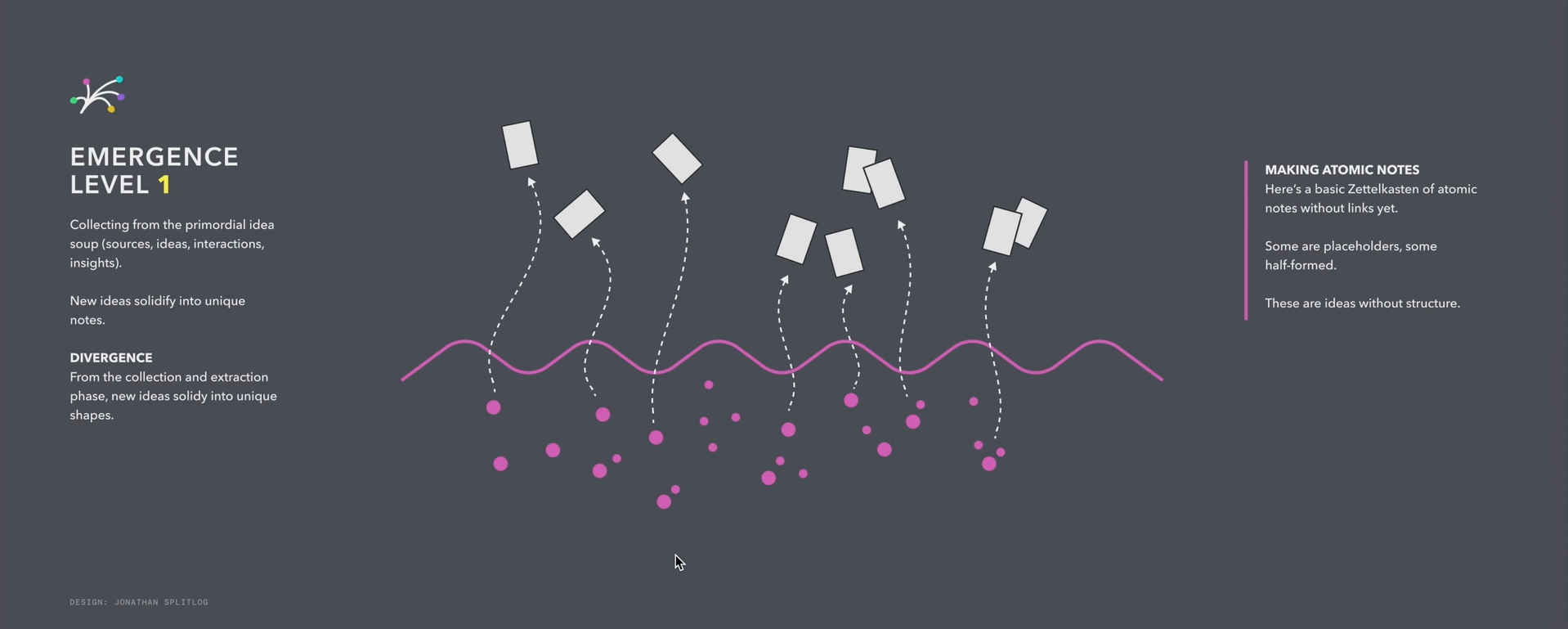
# Emergence Level 2
Once you take a unique note and link it to another note, you’ve entered “Emergence Level 2.” ==Direct relationships are formed.== This is the basics of a zettelkasten.
Systems perspective 🧩
At this level, there is still more divergence than convergence.
As we continue making connections, the system starts to come alive, almost naturally evolving itself. ==The beauty of the direct link is that bigger ideas start to emerge organically.== This is a well-oiled zettelkasten. But there is not a clear perspective.
As your number of notes grows, it becomes difficult to navigate through them quickly—even with excellent direct links between notes. The limitation is that you’re always at eye-level with you notes…like you’re on the ground in the forest. And very often, you want a ==birds-eye view== to manage these growing relationships.
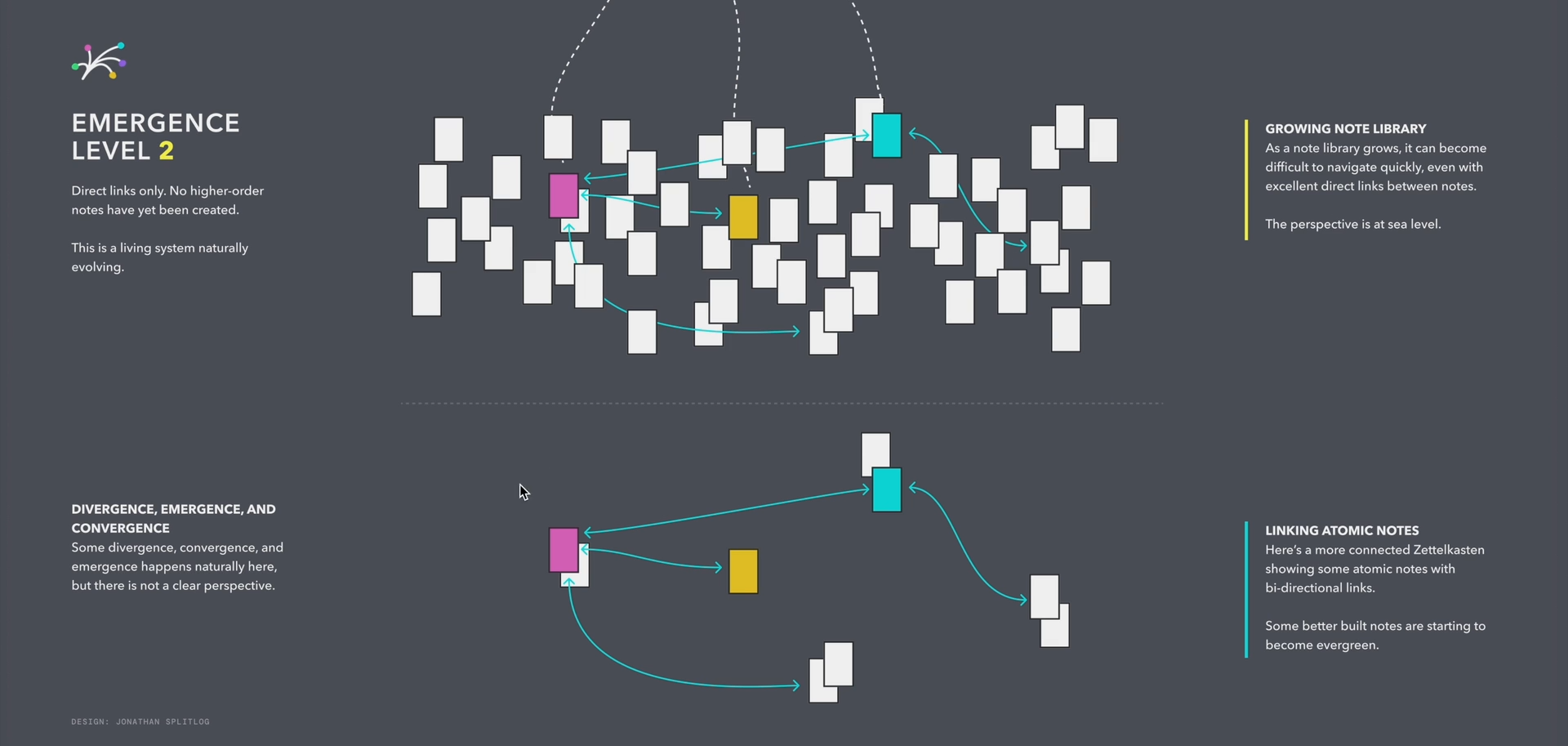
# Emergence Level 3
The solution is to make higher-order notes—which are just ==“notes primarily with links to other notes”. ==
Higher-order notes like MOCs (Maps of Content) serve countless purposes… You can use MOCs to overcome the "Mental Squeeze Point" & ensure you keep working proactively on your ideas and projects.
Just assemble links to notes in a new MOC note. In this way, you offload the cognitive burden so you can stay in creative Flow.
But the even more profound and next-level power of MOCs is to use them as ==rapid ideation chambers. ==
I can’t stress the superpower of this enough…MOCs are ==ideation accelerators. ==
Systems perspective 🧩
Massive emergence, convergence, and divergence happen here.
And yes, most obviously, higher-order notes like MOCs can be used for navigational purposes (hence the “map” nomenclature).
With your MOCs, you are 80% of the way done to finalized creations. But that’s not all the value you’ve created…
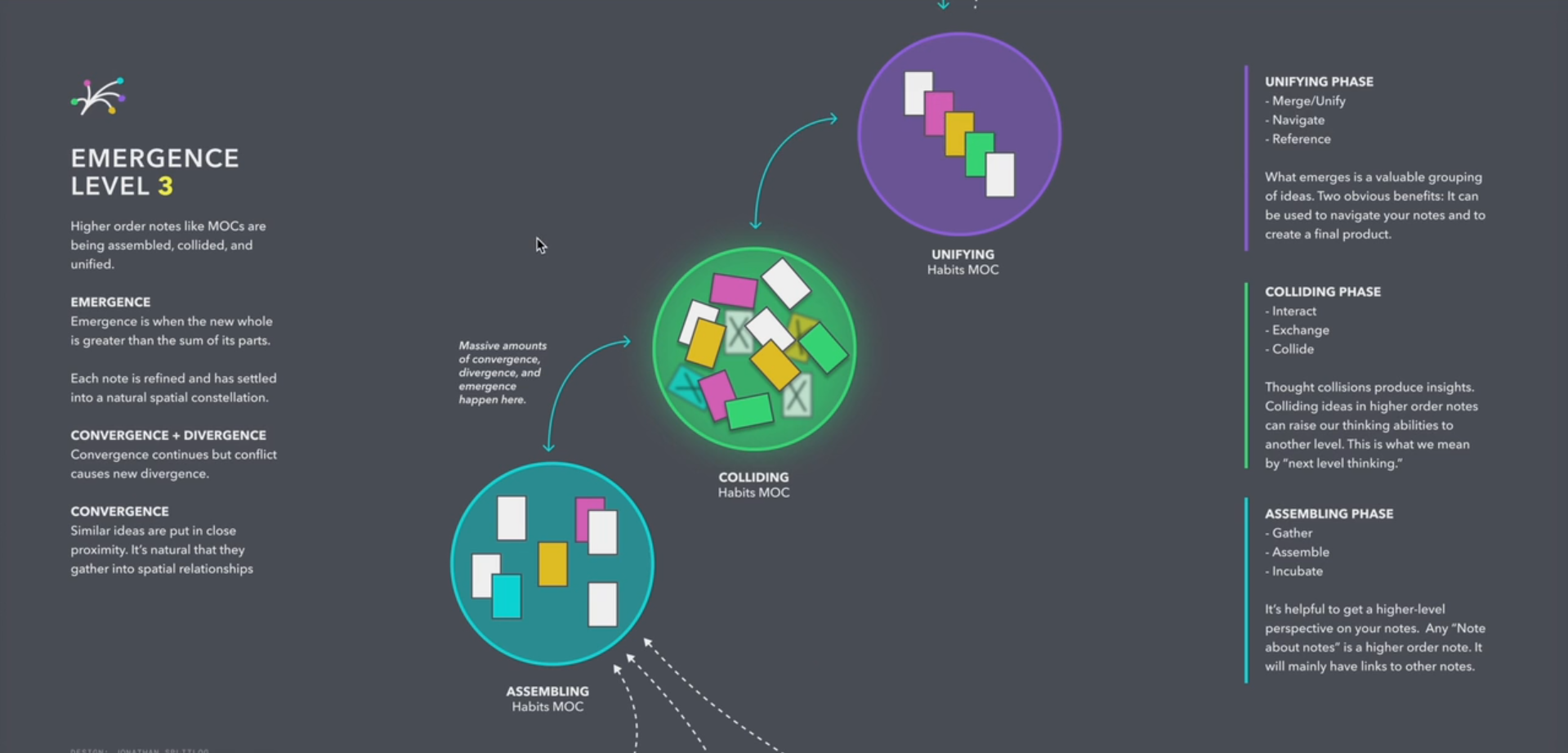
# Emergence Level 4
At this next level of emergence, you are ==linking higher-order notes.== MOCs are linked to MOCs. Instead of a just having living systems—like a standard zettelkasten—now we have ==living ecosystems==!
Systems perspective 🧩
Less divergence happens here, but plenty of convergence does.
This allows you to fly around your note library rapidly, organically getting unforced behavior-driven spaced repetition (Speculation: We’re going to find this is a superior method of memory retention versus the anki version of rote-like spaced repetition)
Now you have multiple MOCs that easily communicate and contribute to more enriched creations.
How powerful is that?!
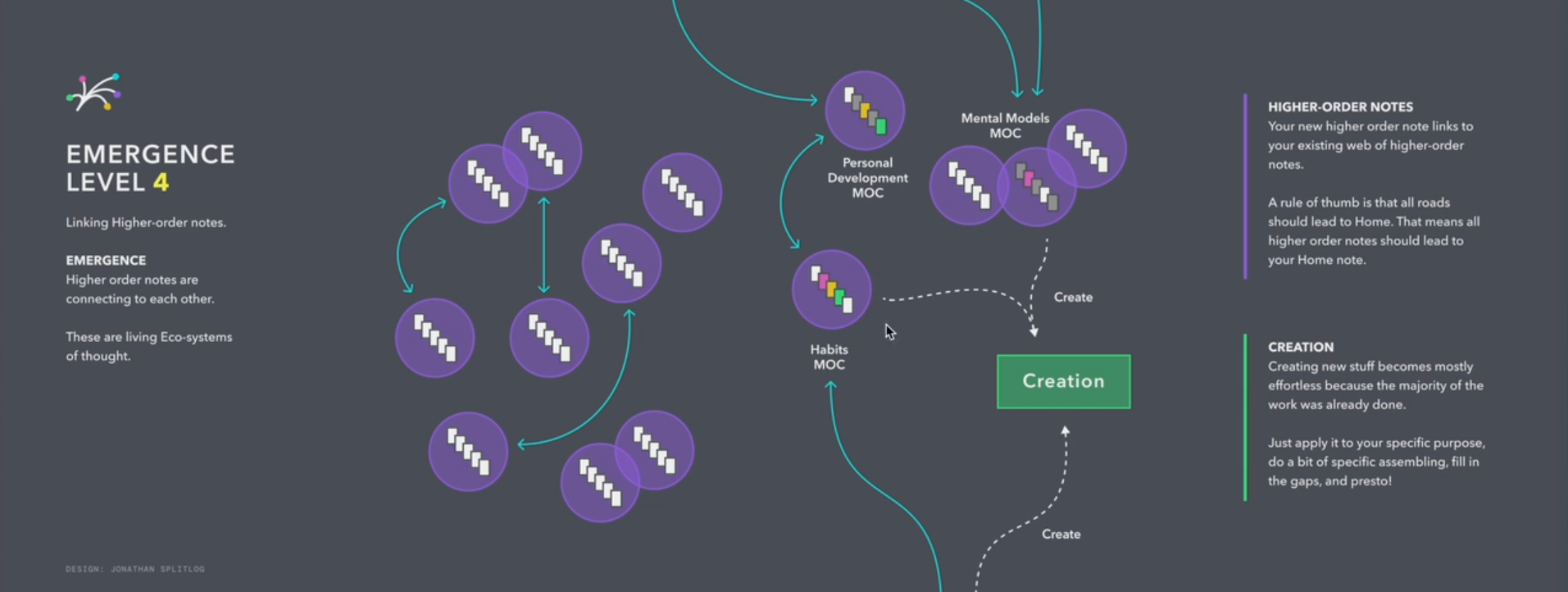
# Emergence Level 5
Now, we get to the highest level of your Idea Emergence…Your home note. It consolidates new higher-order notes w/ older, more mature higher-order notes.
All roads lead to home.
The home note is the beginning and the end. It is a launchpad and a homebase. It is a fixed point in the sky. At this level, your ideas have become like a relatively stable planetary system. It’s your “Earth”. (Someone else’s PKM would be another planet by the way.)
Systems perspective 🧩
The Home note is all about Convergence.
It allows for top-down “Convergent” thinking like navigating and deliberate creating.
It also allows for bottom-up “Convergent” thinking by consolidating new forms of emergence.
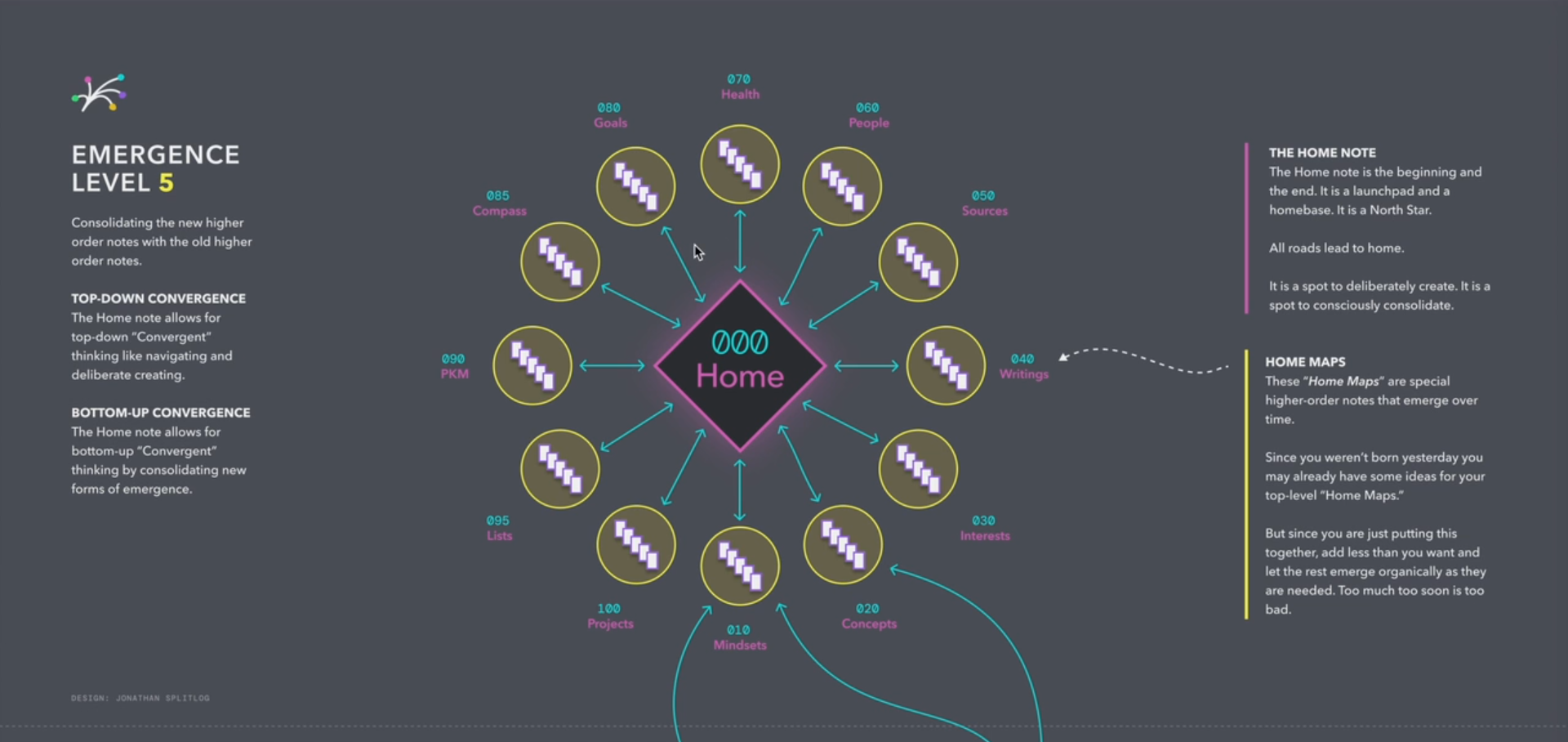
That is Cards/Idea Emergence.
If you can utilize this framework effectively, I am confident you will change the way the game is played and take your thinking to another level!